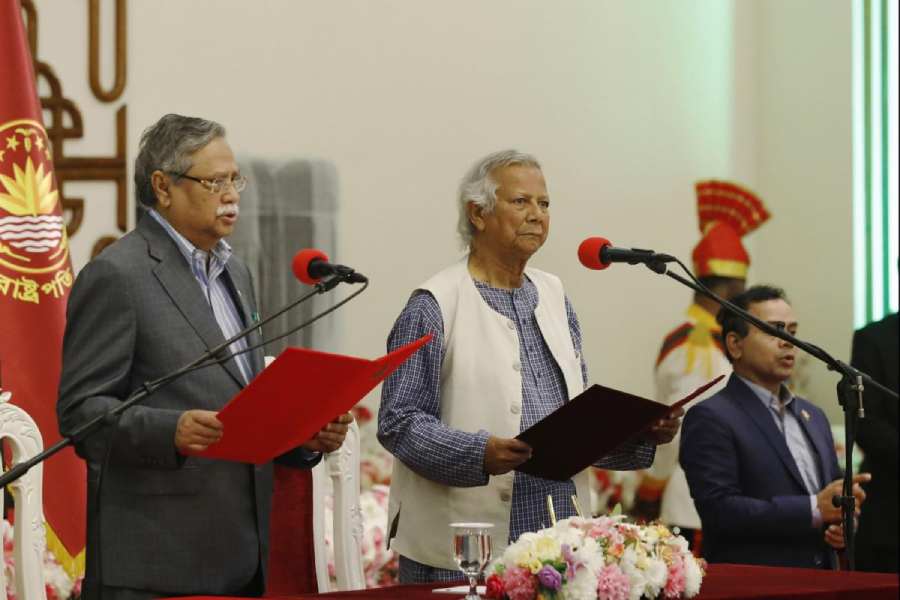Bangladesh's interim leader Muhammad Yunus on Friday announced the portfolios of his 16-member council of advisors and named a former top diplomat to head the foreign ministry, who underlined the importance of maintaining a "balance" in Dhaka's relations with the "big powers".
The 84-year-old Nobel laureate's first task is to bring stability to Bangladesh after he responded to a call by student protesters for him to temporarily lead the country following weeks of deadly anti-government demonstrations against the government led by Sheikh Hasina.
Yunus was sworn in on Thursday as the head of an interim government following the toppling of Prime Minister Hasina's government and the dissolution of parliament on Monday. He is also a longtime critic of Hasina, who fled to India following the political turmoil in Dhaka.
Yunus was sworn in as the chief advisor - a position equivalent to prime minister. Other advisors were selected in consultation with student leaders, the military, and civil society representatives.
According to an official announcement, Yunus will oversee a broad array of ministries keeping to himself 27 portfolios including the defence, public administration, education, energy, food, water resources and information ministries.
Former foreign secretary Mohammad Touhid Hossain has been entrusted with the charge of the foreign ministry while retired Army brigadier general M Sakhawat Hossain was tasked to oversee the home ministry.
Hossain was the Deputy High Commissioner of Bangladesh in Kolkata from 2001 to 2005 and served as Foreign Secretary of Bangladesh from 2006 to 2009.
Restoring law and order is the key priority of the interim government at the moment and others will be back on track once the first goal is achieved, Foreign Affairs adviser Hossain told reporters here.
He also said that Bangladesh needs to have good relations with all the countries, the UNB news agency reported.
“We want to keep good relations with all. We need to maintain a balance of relations with the big countries,” Hossain said, without naming any nation.
Former Bangladesh Bank governor Salahuddin Ahmed will be in charge of the finance and planning ministries while former attorney general A F Hassan Arif will oversee the local government ministry.
Two coordinators of Students Against Discrimination inducted in the interim cabinet M Nahid Islam and Asif Mahmud were given the charge of telecommunications and information technology and youth and sports ministries respectively.
The group waged first the street movement to reform the quota system for government jobs last month which later turned into a public upsurge and ousted Hasina’s 15-year regime and installed the interim government, reportedly backed by the military.
Three members of the advisers’ council, mostly civil society figures, could not take the oath on Thursday night at the Bangabhaban presidential palace as they were outside of the capital and officials presumed that Yunus might distribute some of the 27 portfolios to them.
Meanwhile, some police stations in Bangladesh, which were deserted during the peak of the anti-government protests, are slowly resuming their normal activities with the assistance of the military, according to media reports on Friday.
Following the fall of the Hasina government amid violent street protests, all police station activities came to a halt. Several police stations were attacked, looted and set on fire, leading to many officers evacuating their stations and going into hiding due to the threat of more attacks.
Except for the headline, this story has not been edited by The Telegraph Online staff and has been published from a syndicated feed.











